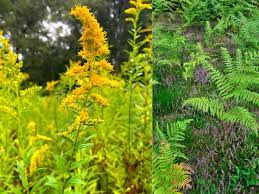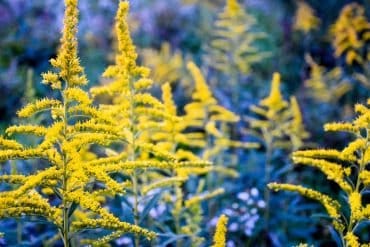A study conducted in the United States discovered that extracts from two common wild plants inhibit the ability of the virus that causes Covid-19 to infect living cells.
Extracts from the flowers of tall goldenrod (Solidago altissima) and the rhizomes of eagle fern (Pteridium aquilinum) each prevented SARS-CoV-2 from entering human cells in laboratory dish tests.
The active compounds are only found in trace amounts in the plants.
People attempting to treat themselves with them would be ineffective and potentially dangerous, according to Emory University researchers in Georgia. They warned that the eagle fern is known to be toxic.
“It’s very early in the process, but we’re working to identify, isolate and scale up the molecules from the extracts that showed activity against the virus,” said Cassandra Quave, senior author and associate professor in Emory School of Medicine’s Department of Dermatology and the Centre for the Study of Human Health.

“Once we have isolated the active ingredients, we plan to further test for their safety and for their long-range potential as medicines against Covid-19,” Quave said in the study published in Scientific Reports journal.
Given that Covid-19 is a newly emerged disease, the researchers took a broader approach. They devised a method to rapidly test more than 1,800 extracts and 18 compounds from the Quave Natural Product Library for activity against SARS-CoV-2.
“We’ve shown that our natural products library is a powerful tool to help search for potential therapeutics for an emerging disease,” said Caitlin Risener, a PhD candidate in Emory’s Molecular and Systems Pharmacology graduate programme.
Additional tests revealed that the plant extracts’ protective power was effective against all four SARS-CoV-2 variants: alpha, theta, delta, and gamma.
“Our findings pave the way for the future use of natural product libraries to discover new tools or therapies for infectious diseases,” said Quave.
Source:SE







 Finance
Finance







